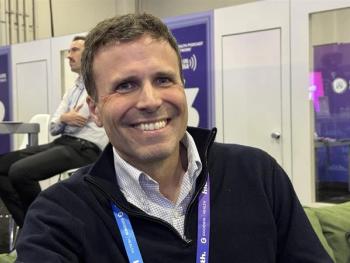
FDA Clears Current Health's Vital Sign Wearable
The wearable has the potential to reduce hospital readmissions and improve patient outcomes.
Thumbnail and image above have been modified. Courtesy of
The U.S. Food and Drug Administration (FDA)
The wireless device, built from a real-time physiological data set, continuously and automatically monitors the wearer’s pulse rate, oxygen saturation, temperature and movement to help doctors determine a patient’s health trajectory and allows doctors to intervene earlier if they have to.
>>
According to the announcement, healthcare providers in the U.S. and U.K. are using Current to change their patient delivery models to produce better patient outcomes. The announcement also suggests that Current might help health organizations reduce unnecessary hospital readmissions for patients whose conditions deteriorate after treatment — which costs U.S. hospitals more than $40 billion annually.
Mount Sinai Brooklyn is working with Current to improve outcomes and give patients safer, higher quality care.
“Current’s continuous and proactive monitoring platform has the potential to alert us to patient deterioration faster and give our team data insights they can act on earlier,” said Scott Lorin, M.D., president of Mount Sinai Brooklyn.
The wearable device is also being used by the Dartford and Gravesham NHS Trust Hospital at Home team in the U.K. to remotely monitor patients after discharge.
“As a result, clinicians and staff reprioritized home visits based on criticality, resulting in a 22 percent reduction in home visits and fewer hospital readmissions and emergency department visits, which freed up skilled nursing time and helped patients feel safe and secure,” the announcement said.
The FDA clearance further reinforces the agency’s plan to
Get the best insights in healthcare analytics
Related






































